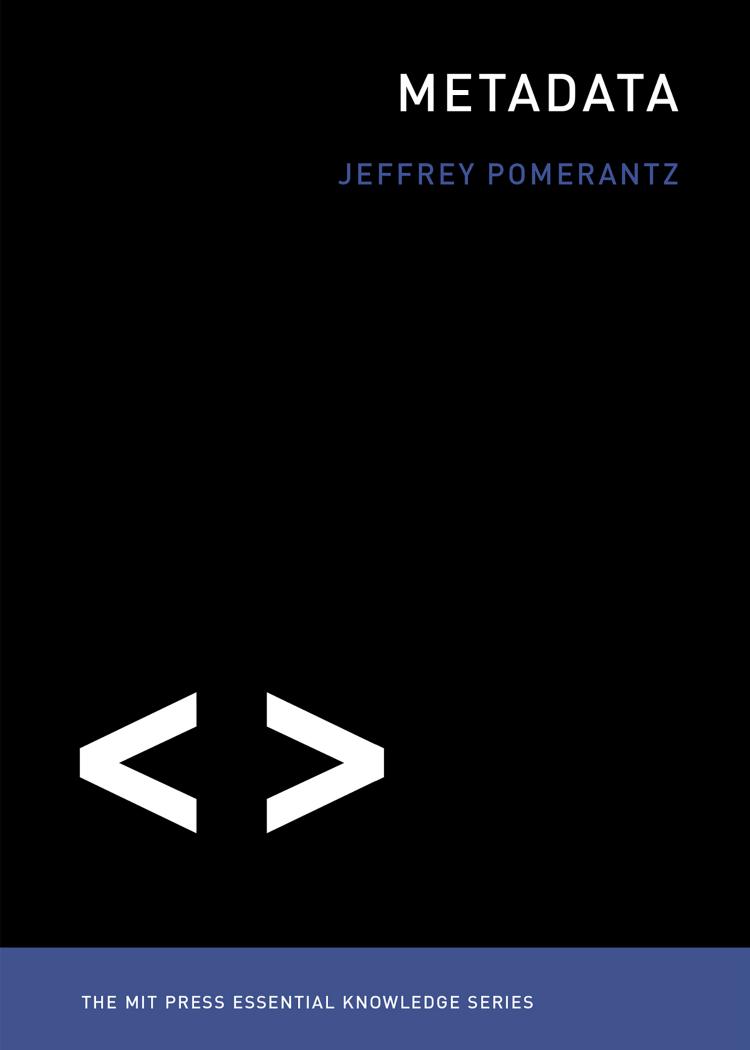Metadata by Jeffrey Pomerantz

Author:Jeffrey Pomerantz
Language: eng
Format: epub, pdf
Publisher: The MIT Press
Published: 2015-12-18T05:00:00+00:00
“We Kill People Based on Metadata.”
General Michael Hayden made this rather alarming statement in the panel debate “Re-evaluating the NSA,” at Johns Hopkins University in April 2014. And General Hayden is a former Director of both the National Security Agency and the Central Intelligence Agency, so it’s a pretty sure thing that he knows what he’s talking about.
How is death by metadata even possible? Although anything from Assassinations to Zombie art may be described by the Art & Architecture Thesaurus, no one is going to kill anyone over a controlled vocabulary.
The answer is that metadata can be incredibly revealing. In particular, the type of metadata known as use metadata captures a great deal of data about individuals and individuals’ behaviors. Further, not only can use metadata reveal information about individuals, it can also provide rich data about social networks, and the connections between individuals, places, and organizations. Human beings are social animals, so when describing a person, it’s almost inevitable that you’ll wind up describing that person’s relationships with other people. And it should be clear from the very brief foray into network analysis in chapter 2, that once you start discussing relationships, you’re discussing networks.
The game Six Degrees of Kevin Bacon provides a silly but nevertheless illuminating example. The goal of this game is to start with any actor or actress, and to connect him or her to Kevin Bacon in six or fewer steps, a step being defined as who was in a movie with whom. For example, Max Schreck (who played the vampire Count Orlok in the 1922 silent film Nosferatu), was in Boykott with Wolfgang Zilzer, who was in Lovesick with Elizabeth McGovern, who was in She’s Having a Baby with Kevin Bacon—thus giving Max Schreck the surprisingly low Bacon number of 3. The game Six Degrees of Kevin Bacon was obviously based on the idea of “Six Degrees of Separation,” made famous by the stage play and movie of the same name, that anyone in the world is connected to anyone else through no more than six other people—provided that you can identify the correct six. (“Six Degrees of Separation” was, in turn, influenced by Stanley Milgram’s 1967 “small world experiment,” which was one of the first empirical studies of social networks.) Variations on this idea are relatively common. Another popular example is the Erdős number, named after the mathematician Paul Erdős, who collaborated and co-authored papers very widely. Erdős’ co-authors (511 of them) have an Erdős number of 1, their co-authors have an Erdős Number of 2 (9,267 people), and so on. (Amusingly, Paul Erdős has a Bacon number of 4, as he was the subject of a documentary, N Is a Number. Kevin Bacon, however, has an Erdős number of infinity, which means that there is no connection, as Kevin Bacon has never published a mathematics paper.)
The graphs that make Six Degrees of Kevin Bacon and calculating someone’s Erdős number possible are quite simple: the nodes in these graphs are actors or mathematicians, and the edges are “was in a movie with” or “co-authored a paper with.
Download
This site does not store any files on its server. We only index and link to content provided by other sites. Please contact the content providers to delete copyright contents if any and email us, we'll remove relevant links or contents immediately.
Hit Refresh by Satya Nadella(9132)
The Compound Effect by Darren Hardy(8965)
Change Your Questions, Change Your Life by Marilee Adams(7780)
Nudge - Improving Decisions about Health, Wealth, and Happiness by Thaler Sunstein(7706)
The Black Swan by Nassim Nicholas Taleb(7129)
Deep Work by Cal Newport(7083)
Rich Dad Poor Dad by Robert T. Kiyosaki(6632)
Daring Greatly by Brene Brown(6512)
Principles: Life and Work by Ray Dalio(6446)
Playing to Win_ How Strategy Really Works by A.G. Lafley & Roger L. Martin(6301)
Man-made Catastrophes and Risk Information Concealment by Dmitry Chernov & Didier Sornette(6019)
Big Magic: Creative Living Beyond Fear by Elizabeth Gilbert(5771)
Digital Minimalism by Cal Newport;(5764)
The Myth of the Strong Leader by Archie Brown(5507)
The Slight Edge by Jeff Olson(5417)
Discipline Equals Freedom by Jocko Willink(5389)
The Motivation Myth by Jeff Haden(5212)
The Laws of Human Nature by Robert Greene(5208)
Stone's Rules by Roger Stone(5087)
